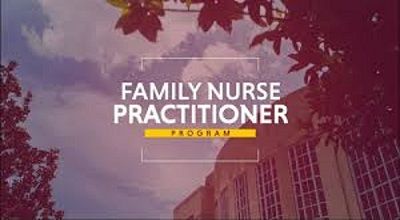Online Family Nurse Practitioner
Family Nurse Practitioner (Online Family Nurse Practitioner) programs are designed for registered nurses (RNs) who wish to advance their careers and take on more responsibilities in patient care. Online FNP programs are particularly popular as they offer flexibility, allowing nurses to continue working while they study. Here’s a straightforward guide to understanding these programs:
1. What is a Family Nurse Practitioner?
- An FNP is a type of advanced practice registered nurse (APRN).
- FNPs provide comprehensive healthcare services across all ages, often with a focus on family health.
- They can diagnose and treat health conditions, prescribe medications, and offer health advice.
2. Why Choose an Online FNP Program?
- Flexibility: Ideal for working nurses, online programs let you study without relocating or giving up your job.
- Accessibility: You can access course materials from anywhere with an internet connection.
- Diverse Learning Materials: Online programs often use videos, discussions, and interactive content.
3. Requirements for Enrollment
- Nursing Degree: You typically need a Bachelor of Science in Nursing (BSN).
- Registered Nurse License: A current, valid RN license is a must.
- Work Experience: Some programs require work experience as an RN.
- Academic Prerequisites: This might include courses in statistics, health assessment, etc.
4. Course Structure and Content
- Duration: Most programs take 2-3 years to complete.
- Core Courses: These might include advanced pharmacology, health policy, family health, and research methods.
- Clinical Hours: Clinical practicums are essential. Some online programs require you to arrange your clinical sites.
5. Licensing and Certification
- After graduation, you must pass a national certification exam to practice as an FNP.
- State-specific licensure requirements also apply.
6. Career Opportunities and Scope
- FNPs work in various settings, including clinics, hospitals, and private practices.
- They often have greater autonomy than RNs and can specialize in areas like pediatric, geriatric, or women’s health.
7. Choosing the Right Program
- Accreditation: Ensure the program is accredited by a recognized nursing accreditation body.
- Support Services: Look for programs offering strong student support, like tutoring and career services.
- Clinical Placements: Consider how the program assists with clinical placements.
- Cost and Financial Aid: Understand the tuition costs and available financial aid options.
8. Getting Started
- Research and compare different programs.
- Reach out to admissions counselors for specific questions.
- Prepare your application, including transcripts, letters of recommendation, and personal statements.
Final Conclusion
Online FNP programs are a great way to advance your nursing career while maintaining your current job and lifestyle. Just be sure to choose a program that fits your needs and meets all the necessary accreditation and educational standards.





